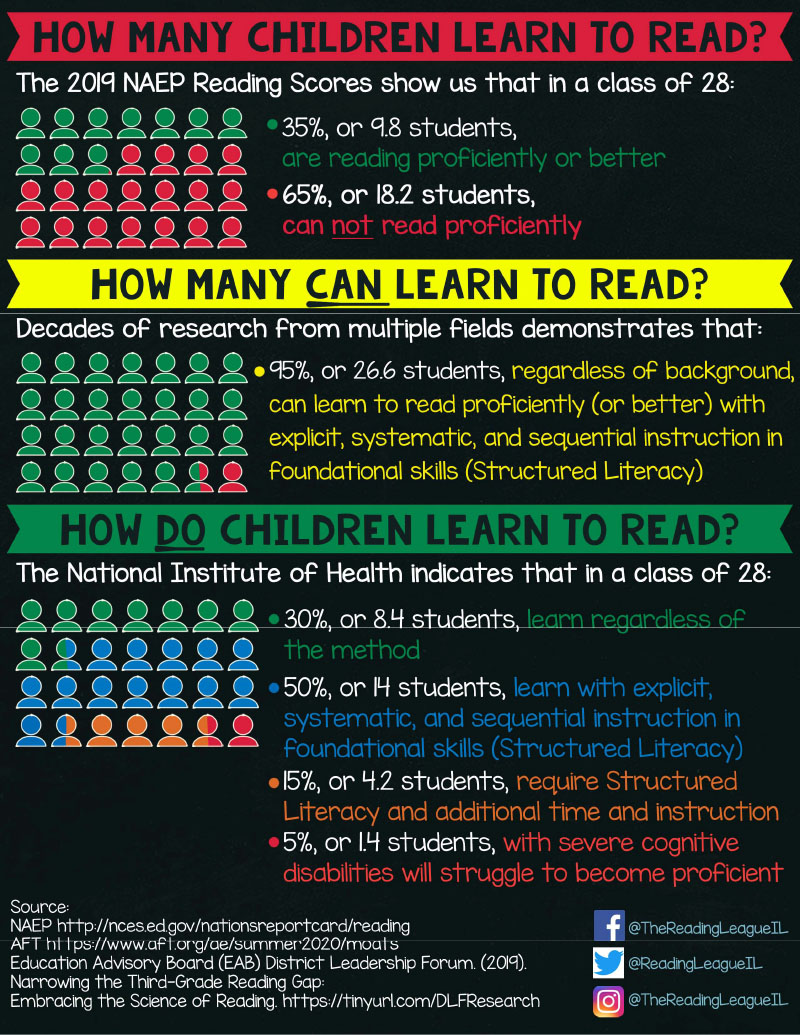Our doctors are up to date with the latest research when we’re sick, why can’t we assume that our schools are the same?
When I go to the doctor, I assume they are up to date on the most current research on my condition and I trust they will make sure I get the cutting edge treatment and medications I need. Of course I do, because I know my doctor is ethical and wants the best for me.
So how can we be so far off the mark when it comes to reading instruction and, as a result, failing so many students? Research has shown that 95% of students in a classroom, regardless of their background, can learn to read proficiently or better if they are provided with high quality structured literacy instruction. About 15% of these students will need some extra support to help them on their way. And yet, only 35% of our students are reading proficiently-and that number is lower for Black and African American students. That statistic is worth repeating. JUST 35% OF OUR 4th GRADE STUDENTS ARE READING PROFICIENTLY.

The New York Times just published this article regarding Units of Study, a “wildly popular and profitable”reading curriculum. Research has shown that this curriculum is not effective and that students need a systematic, sequential approach to teaching basic foundational reading skills and yet it continues to be used in many school districts across the country.
Where are we going so wrong? These questions and answers from The Reading League, a national not-for-profit organization with the mission to advance the awareness, understanding, and use of scientifically aligned reading instruction are disturbing:
Don’t colleges/universities provide teachers with this knowledge during their preparation programs?
Not necessarily. Much of the science of reading comes from disciplines outside of schools of education (e.g., neuroscience, linguistics, cognitive psychology, etc.) Therefore, professors who teach in schools of education are often unfamiliar with the scientific evidence base.
Don’t school districts provide teachers with this knowledge once they are hired?
Not necessarily. School district administrators and teachers who plan professional development experiences are often not aware of the scientific evidence base on how students learn to read. Schools tend to implement popular, heavily advertised approaches and materials that they assume are grounded in the evidence base. Sadly, the profit-driven commercial entities that dominate the educational marketplace are often not aligned with the science of how students best learn to read.
There is a Facebook group, The Science of Reading: What I should have learned in College. Teachers in this group and many I have spoken to express dismay and guilt that they have been failing their students because they have not been equipped with the appropriate tools and knowledge to teach their students successfully.
We know better and now we need to do better. Reading Allowed provides high quality, structured literacy tutoring regardless of financial circumstances. Our impact is deep. We are also working with schools to help implement best structured literacy practices into their classrooms because we know that is the way to have a broader impact and to reduce the number of students who need intensive support.
Everyone deserves the best, most up to date medical treatment and every student deserves access to high quality, research based instruction. We know how to do it, now we just need to do it. It’s really not brain surgery.
